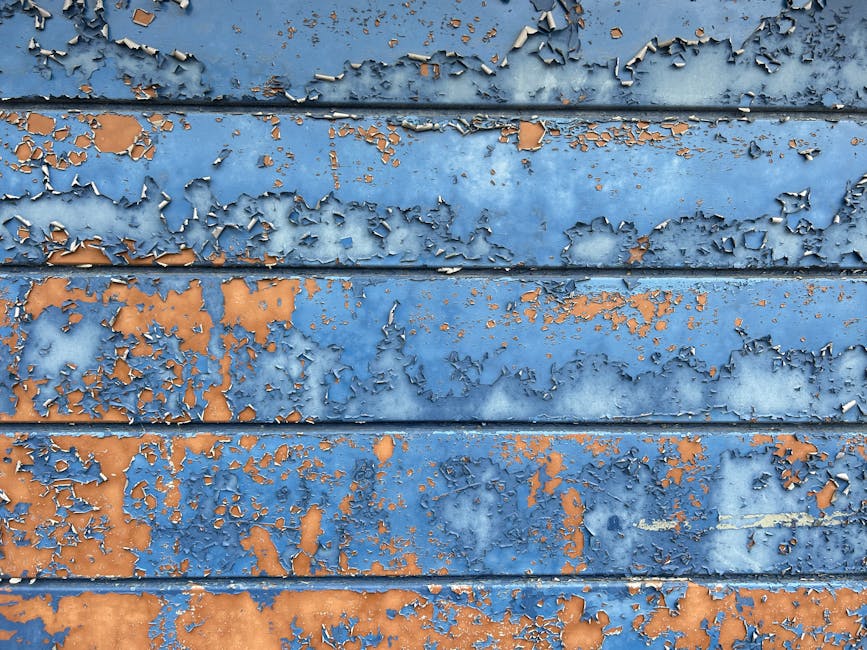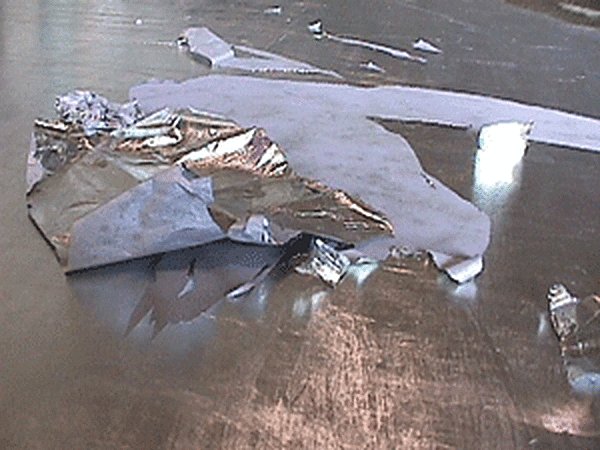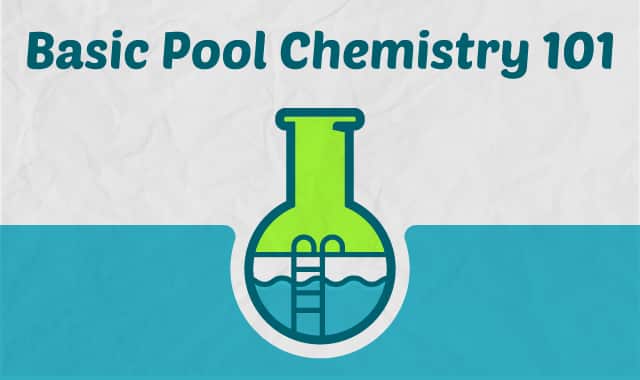Welcome to the world of pools, where sunny days and refreshing dips await. But what happens when your pool starts peeling and flaking? Don’t worry, we’ve got you covered! In this article, we’ll explore the causes behind pool peeling and flaking and share some effective remedies to bring your pool back to its splashing glory. So, let’s dive in and uncover the secrets to a smooth and pristine pool surface!
Ah, the joy of diving into a sparkling pool on a scorching day! But if you’ve noticed your pool’s surface looking less than perfect, with peeling or flaking areas, it’s time to investigate what might be causing this uninvited guest. From chemical imbalances to poor surface preparation, several factors can contribute to pool peeling and flaking. But worry not, because we’re here to help you understand the root causes and guide you towards the appropriate solutions.
Imagine this: you’re surrounded by friends, ready to take a plunge, when suddenly you notice unsightly peeling or flaking in your pool. Not the scenario you envisioned, right? Luckily, we’re here to lend a hand! In this article, we’ll explore the different causes behind pool peeling and flaking, from improper maintenance to ageing surfaces, and delve into the best remedies to tackle this issue head-on. So, let’s roll up our sleeves and learn how to keep your pool looking as smooth as a summer’s breeze!

Pool Peeling and Flaking: Causes and Remedies
Having a pool in your backyard is a luxury that many homeowners enjoy. However, it can be frustrating and disappointing when you notice that your pool is peeling and flaking. Not only does it affect the aesthetics of your pool, but it can also lead to more serious problems if left untreated. In this article, we will explore the causes behind pool peeling and flaking and provide you with effective remedies to restore your pool’s appearance and functionality.
The Effects of Chemical Imbalance
One of the primary causes of pool peeling and flaking is a chemical imbalance in the water. When the water chemistry is not properly maintained, it can have detrimental effects on your pool’s surface. High levels of chlorine, alkalinity, or calcium can result in the breakdown of the pool finish, causing it to peel and flake. Additionally, a low pH level can also contribute to premature deterioration of the surface material.
To address this issue, it is crucial to regularly test and balance the chemicals in your pool. Use a reliable water testing kit to determine the current levels of chlorine, pH, alkalinity, and calcium hardness. Based on the results, adjust these levels as needed to ensure a balanced chemical composition. By maintaining proper water chemistry, you can prevent pool peeling and flaking and extend the lifespan of your pool’s surface.
In addition to balancing the chemicals, regular cleaning and maintenance are essential to prevent pool peeling and flaking. Skim the pool’s surface daily to remove debris and use a pool brush to gently scrub away any algae or dirt buildup. Regularly vacuum the pool to prevent stains and discoloration. By keeping your pool clean and well-maintained, you can minimize the risk of peeling and flaking.
The Impact of Environmental Factors
While chemical imbalance is a common cause of pool peeling and flaking, environmental factors can also play a significant role. Exposure to harsh weather conditions, particularly extreme heat and UV radiation, can cause the pool’s surface to deteriorate over time. Likewise, freeze-thaw cycles in colder climates can lead to the expansion and contraction of the pool materials, resulting in peeling and flaking.
To protect your pool from these environmental factors, consider investing in a high-quality pool cover. A cover not only helps to maintain water temperature and reduce evaporation but also shields the pool’s surface from direct sunlight. Additionally, using a pool shade structure or planting trees strategically around the pool area can provide natural shade and further protect the pool surface from UV damage.
In regions with colder climates, it is crucial to winterize your pool properly to prevent freeze-thaw damage. This involves draining the water to the appropriate level, adding winterizing chemicals, and covering the pool with a winter pool cover. By taking these precautions, you can minimize the risk of peeling and flaking caused by freezing temperatures.
Proper Pool Construction and Maintenance
The construction and maintenance practices employed during the installation of your pool can have a significant impact on its resilience and longevity. Poor construction techniques, such as inadequate bonding between the pool surface and the substrate, can lead to peeling and flaking over time. Similarly, using low-quality materials that are not designed to withstand the harsh conditions of a pool environment can result in premature deterioration.
If you notice signs of pool peeling and flaking, it is essential to consult with a professional pool contractor or specialist. They will be able to assess the extent of the damage and provide expert advice on the most appropriate remedies. In some cases, it may be necessary to resurface the pool or apply a new layer of finish to restore its appearance and functionality. Investing in high-quality materials and proper construction practices during the repair process can help prevent future peeling and flaking issues.
To prevent pool peeling and flaking in the long term, regular maintenance is crucial. Implement a routine cleaning schedule and address any chemical imbalances promptly. Ensure that all pool equipment, such as filters and pumps, are in good working condition to prevent any issues that could contribute to peeling and flaking. By adopting proper maintenance practices, you can keep your pool in pristine condition for years to come.
The Importance of Proper Pool Maintenance
Proper pool maintenance is essential to ensure the longevity and aesthetics of your pool. Neglecting regular maintenance tasks can lead to various issues, including pool peeling and flaking. By understanding the potential causes and implementing effective remedies, you can prevent and resolve these problems. In this section, we will discuss the importance of proper pool maintenance and provide tips to help you keep your pool in optimal condition.
Benefits of Regular Pool Maintenance
Regular pool maintenance offers a range of benefits that not only enhance the appearance of your pool but also ensure a safer and more enjoyable swimming experience. Here are some key benefits:
- Prevents costly repairs: By identifying and addressing small issues before they escalate, regular maintenance helps prevent costly repairs in the future. This includes identifying and repairing leaks, fixing equipment malfunctions, and addressing any surface damage.
- Ensures water safety: Regular maintenance involves testing and balancing the chemical composition of the pool water. This helps prevent the growth of harmful bacteria, algae, and other contaminants, ensuring that the water is safe and healthy for swimming.
- Preserves pool equipment: Well-maintained pool equipment, such as filters, pumps, and heaters, last longer and operate more efficiently. Regular maintenance tasks, such as cleaning and replacing filters, lubricating moving parts, and checking for leaks, help prolong the lifespan of your equipment.
- Enhances water clarity: By regularly cleaning and vacuuming the pool, skimming the surface, and maintaining proper filtration, you can achieve crystal-clear water that is visually appealing and inviting for swimming.
- Improves energy efficiency: Regular maintenance of pool equipment ensures that it operates at its peak efficiency. This leads to lower energy consumption, reducing your utility bills and minimizing your carbon footprint.
Tips for Effective Pool Maintenance
To keep your pool in top condition, follow these tips for effective pool maintenance:
- Establish a regular cleaning routine: Skim the pool’s surface daily to remove debris and use a pool brush to gently scrub away any dirt or algae buildup. Vacuum the pool at least once a week to remove any settled debris.
- Monitor water chemistry: Test the pool water regularly using a reliable water testing kit to ensure the proper balance of chlorine, pH, alkalinity, and calcium hardness. Adjust the chemical levels as needed to maintain a healthy and balanced swimming environment.
- Check and maintain pool equipment: Inspect and clean pool equipment, such as filters, pumps, and heaters, regularly. Lubricate moving parts, replace worn-out or damaged components, and ensure that everything is in good working condition.
- Keep an eye out for leaks: Regularly inspect the pool for any signs of leaks, such as wet spots on the ground, decreased water level, or abnormal pump behavior. Address leaks promptly to prevent further damage and water loss.
- Protect the pool from the elements: Use a pool cover to protect the pool from harsh weather conditions, such as extreme heat or cold. Additionally, add shade structures or strategically placed trees to shield the pool from direct sunlight and UV radiation.
By implementing these maintenance tips, you can ensure that your pool stays in excellent condition for years to come, reducing the risk of pool peeling and flaking and maintaining a beautiful and inviting swimming environment.
Common Misconceptions about Pool Peeling and Flaking
When it comes to pool peeling and flaking, there are several common misconceptions that may lead to ineffective remedies or unnecessary expenses. It is essential to separate fact from fiction to address the root causes of the problem effectively. In this section, we will debunk some of the most common misconceptions about pool peeling and flaking.
Misconception 1: Pool peeling and flaking are purely cosmetic issues.
Reality: While pool peeling and flaking may affect the appearance of your pool, they can also be indicative of more significant problems. Peeling and flaking can expose the underlying pool structure, allowing water to penetrate and damage the substrate. This can lead to leaks, cracks, and other structural issues if not addressed promptly.
To ensure the integrity of your pool and prevent further damage, it is crucial to identify and resolve the cause of the peeling and flaking.
Misconception 2: Adding more chlorine will fix the problem.
Reality: While a chemical imbalance is one of the causes of pool peeling and flaking, adding more chlorine is not always the solution. In fact, over-chlorination can exacerbate the problem and damage the pool’s surface further.
Instead, it is essential to properly balance all the chemicals in your pool, including chlorine, pH, alkalinity, and calcium hardness. Test the water regularly and adjust the chemical levels as necessary to maintain a healthy and balanced swimming environment.
Misconception 3: Repairing the surface will permanently solve the issue.
Reality: Repairing the surface of your pool may provide a temporary fix, but if the underlying cause is not addressed, the peeling and flaking are likely to return. Whether it is a chemical imbalance, environmental factors, or poor construction, it is important to address the root cause to prevent future damage.
If you notice signs of peeling and flaking, consult with a professional to assess the extent of the damage and identify the underlying issue. By addressing the cause, you can implement effective remedies and prevent further problems.
Misconception 4: Pool peeling and flaking are unavoidable with age.
Reality: While it is true that some wear and tear are expected over time, proper maintenance and care can significantly slow down the deterioration process. By regularly cleaning, balancing chemicals, protecting from environmental factors, and addressing any underlying issues, you can extend the lifespan of your pool’s surface and minimize the risk of peeling and flaking.
Remember that prevention is key when it comes to pool maintenance, and investing time and effort in maintenance tasks can save you from costly repairs or resurfacing in the long run.
The Importance of Professional Pool Inspection
While regular maintenance and care play a crucial role in preventing pool peeling and flaking, it is equally important to enlist the help of a professional pool inspector for a thorough examination. A professional pool inspection can provide valuable insights into the condition of your pool and identify any potential issues that may lead to peeling and flaking. In this section, we will explore the importance of a professional pool inspection and its benefits.
The Benefits of Professional Pool Inspection
A professional pool inspection offers numerous benefits that can save you time, money, and frustration in the long run. Here are some key advantages:
- Early detection of problems: A professional pool inspector has the expertise to identify potential issues that might go unnoticed during routine maintenance. By detecting problems early, you can address them promptly and prevent further damage or expensive repairs.
- Thorough assessment of the pool’s condition: A professional inspection involves a comprehensive evaluation of various aspects, including the pool surface, equipment, plumbing, and overall structural integrity. This provides a complete picture of your pool’s condition and highlights any areas of concern.
- Identification of underlying causes: In the case of pool peeling and flaking, a professional inspector can determine the root causes behind the issue. This is crucial for implementing effective remedies and preventing future problems.
- Expert recommendations: Based on the findings of the inspection, a professional pool inspector can provide expert recommendations for repairs, maintenance, or upgrades. Their knowledge and experience can help you make informed decisions and optimize the performance and longevity of your pool.
When to Schedule a Professional Pool Inspection
It is advisable to schedule a professional pool inspection under the following circumstances:
- Prior to purchasing a property with an existing pool: If you are considering buying a property that has a pool, a thorough inspection can reveal any hidden issues or potential maintenance costs. This information can help you negotiate the buying price or plan for necessary repairs or upgrades.
- When experiencing recurring pool peeling and flaking: If you have been dealing with persistent pool peeling and flaking issues, a professional inspection can help identify the underlying cause and provide effective solutions. This can save you from unnecessary expenses on surface repairs that may not address the root problem.
- After a significant weather event: If your area has experienced severe weather conditions, such as heavy storms, flooding, or extreme temperatures, it is advisable to schedule a post-event inspection. This can help identify any potential damage or issues that may have arisen due to the weather conditions.
- Periodically as part of routine maintenance: Even if your pool is currently in good condition, periodic professional inspections can help identify any emerging issues or areas of concern. This proactive approach allows you to address problems before they escalate.
By investing in a professional pool inspection, you can gain peace of mind knowing that your pool is in optimal condition, reduce the risk of pool peeling and flaking, and extend the lifespan of your pool’s surface and equipment.
Ensuring Longevity and Beauty for Your Pool
Your pool is a valuable asset that enhances the beauty and enjoyment of your outdoor space. By understanding the causes of pool peeling and flaking and implementing effective remedies, you can protect your pool’s longevity and aesthetics. Regular maintenance, proper chemical balance, protection from environmental factors, and professional inspections are key aspects of ensuring a durable and visually appealing pool. Remember, prevention is key, and investing time and effort in maintaining your pool can save you from costly repairs in the long run. By following the tips and advice provided in this article, you can keep your pool in pristine condition, providing years of delight and relaxation for you and your family.
Key Takeaways – Pool Peeling and Flaking: Causes and Remedies
- Pool peeling and flaking can be caused by improper water chemistry.
- Exposure to harsh weather conditions and UV rays can also lead to pool peeling and flaking.
- Regular maintenance and testing of water chemistry are essential to prevent pool peeling and flaking.
- Applying a pool sealer or epoxy coating can help repair peeling and flaking areas.
- Seek professional help if the peeling and flaking issue persists or worsens.
Frequently Asked Questions
In this section, we will answer some common questions about pool peeling and flaking and provide remedies for these issues.
Q: Why is my pool peeling and flaking?
A: Pool peeling and flaking can occur due to various reasons. One common cause is improper pool surface preparation during construction or renovation. If the surface is not prepared correctly, the paint or plaster may not adhere properly, leading to peeling and flaking over time. Another cause can be water chemistry imbalances, such as high pH or alkalinity levels. These imbalances can cause the pool surface to degrade and peel. Finally, environmental factors like excessive sunlight or harsh weather conditions can also contribute to pool peeling and flaking.
To address these issues, it is important to ensure proper surface preparation during construction or renovation. Regularly test and balance your pool’s water chemistry, keeping pH and alkalinity within the recommended range. Provide proper pool maintenance and protect your pool from harsh weather conditions by using covers or shade structures when needed. Consulting a professional pool contractor can also help identify the specific cause of peeling and flaking in your pool.
Q: Can pool chemicals cause peeling and flaking?
A: Yes, certain pool chemicals can contribute to peeling and flaking. Chlorine, for example, is a commonly used chemical to disinfect pools. However, if the chlorine concentration is too high, it can damage the pool surface and lead to peeling and flaking. Other chemicals, like algaecides or pH adjusters, may also have an impact if not used correctly or in appropriate quantities.
To prevent chemical-related peeling and flaking, it is crucial to follow proper chemical dosing guidelines provided by the manufacturer. Regularly test your pool water to ensure the chemical levels are within the recommended range. If you are uncertain about chemical usage or maintenance, consult a pool professional who can guide you on proper chemical balance and application.
Q: How can I repair peeling and flaking in my pool?
A: Repairing peeling and flaking in a pool will depend on the extent of the damage. For minor peeling or flaking, you can start by gently removing loose or peeling areas with a pool brush or scraper. Once the loose material is removed, sand the area to create a smooth surface. Apply a suitable pool patching compound or paint designed for pool surfaces. Follow the manufacturer’s instructions for application and curing time.
If the damage is more extensive, it is recommended to seek professional help from a pool contractor or specialist. They will assess the damage and recommend the best course of action, which may include resurfacing or replastering the pool. It is important to address peeling and flaking issues promptly to prevent further damage and maintain the integrity of your pool.
Q: How can I prevent pool peeling and flaking?
A: To prevent pool peeling and flaking, regular maintenance is key. Start by properly balancing the water chemistry in your pool. Test the water regularly and adjust the pH, alkalinity, and chlorine levels as needed. Avoid using excessive amounts of chemicals and follow the manufacturer’s guidelines for proper application.
Additionally, protect your pool from prolonged exposure to direct sunlight. Consider using pool covers or installing shade structures to shield the pool from excessive UV radiation. Keep an eye on the weather conditions and take necessary precautions during extreme weather events. Regularly inspect your pool surface for any signs of damage and address them promptly. By following these preventive measures, you can minimize the risk of peeling and flaking in your pool.
Q: Can weather conditions affect pool peeling and flaking?
A: Yes, weather conditions can contribute to pool peeling and flaking. Excessive sunlight, heat, and frequent temperature fluctuations can degrade the pool surface and cause it to peel or flake. Harsh weather events, such as storms or heavy rains, can also impact the pool surface. Additionally, freezing temperatures can cause the expansion and contraction of water, leading to damage in the pool structure.
To protect your pool from weather-related peeling and flaking, consider using pool covers or shades to limit direct sunlight exposure. During extreme weather conditions, take extra precautions to ensure the pool is adequately protected. If you live in an area with freezing temperatures, winterize your pool properly to prevent any damage due to water expansion. Regular maintenance and inspections will help identify any weather-related issues and allow you to address them before they escalate.

Summary
If you see your pool’s surface peeling or flaking, it’s important to understand the causes and remedies. One of the main causes is improper pool chemistry, which can be fixed by regularly testing and balancing the water. Another cause is low-quality or old pool plaster, and the solution is to resurface it. Lastly, water freezing and expanding in cracks can lead to peeling and flaking, so it’s essential to repair any cracks promptly and keep your pool covered in winter. Remember, taking proper care of your pool will help prevent peeling and keep it looking beautiful for years to come!
In conclusion, maintaining the right pool chemistry, repairing any cracks, and resurfacing old plaster are key to preventing pool peeling and flaking. By following these simple steps, you can enjoy a well-maintained pool that will be the highlight of your summer!
- 5 Fun Things to Do in Jindabyne - April 1, 2024
- 7 Fun Things to Do With Kids at the Park - April 1, 2024
- 5 Fun Things to Do in Owen Sound This Weekend - April 1, 2024



